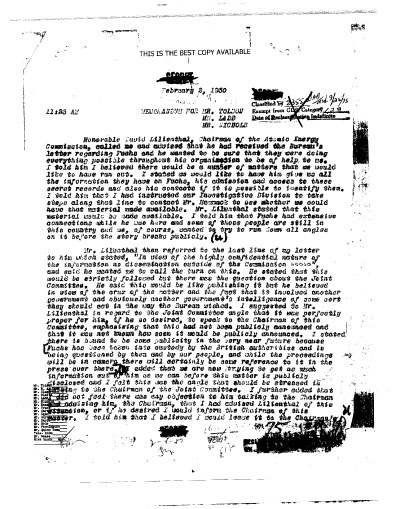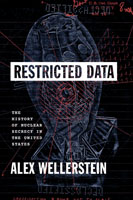Last weekend I saw Clint Eastwood’s new film about the FBI’s first director, “J. Edgar.” I can’t say that I thought it was a great film. Aside from the question of its historical accuracy (which strikes me as, well, dodgy), it was too long, too plodding, and Leonardo DiCaprio, for all of his talents, is just not a very good Hoover. He’s miserable with accents, and just doesn’t ever cease being DiCaprio-playing-Hoover. I never felt like he “inhabited” Hoover, and I didn’t feel he had expanded my understanding of Hoover.
J. Edgar Hoover and Clyde Tolson lunching in their regular booth at the Mayflower Hotel, 1970. Source: Google LIFE archive.
My favorite fictional depiction of Hoover is, without a doubt, the J. Edgar who inhabits James Ellroy’s Underworld USA Trilogy of novels. The Hoover in Ellroy’s books has the same voice as the Hoover in the FBI files I’ve read: precise, curt, with contempt and threat just out of vision, but always present.
In honor of that mindset, and in a shameless movie tie-in, this Weekly Document is a February 1950 memo by J. Edgar Hoover to his Deputy Director, Clyde Tolson, and two other high-ranking FBI employees regarding a phone conversation Hoover had with David E. Lilienthal, Chairman of the Atomic Energy Commission. The conversation’s topic: the imminent announcement of Klaus Fuchs’ role as atomic spy.
Fuchs had been identified as a likely spy by the FBI in late 1949, originally through the cryptanalysis provided by the VENONA project. It wasn’t until February 1950 that he confessed to the MI5, though. The confession was crucial: Fuchs couldn’t be convicted based on actual evidence in the case, because all of the evidence trail eventually led back to the VENONA intercepts, a source the National Security Agency and the FBI were loathe to compromise. (For this reason Hoover was also adamantly against the deportation of Fuchs to the United States, even though the penalties for such espionage were much more severe in the US than the U.K.)
On February 2, 1950, the AEC was told that the U.K. was to announce Fuchs’ arrest and confession the next day. The AEC was caught off-guard — they had only really begun to take in the importance of Fuchs the day before. Lilienthal called Hoover, the results of which Hoover relates in the document here. 1
In the document, Hoover relates that Lilienthal called him up to make sure the AEC was doing everything they could to help the FBI. Hoover asked for all AEC records relating to Fuchs; Lilienthal agreed to provide them. Tame, CYA politicking, of course — Lilienthal wants to make it clear that the AEC is on the record willing to be as useful as possible.
What follows next is pretty interesting, though. Lilienthal is pretty unsure as how to proceed with regards to who else he can tell about this. Can the Joint Committee on Atomic Energy — the Congressional committee with oversight into atomic energy matters — be let in on the fact that this is about to break? This would be “like publishing it,” Lilienthal apparently said. Hoover replied that it would probably be fair to tell the JCAE chairman, since the British were about to announce it anyway, but to emphasize its secret nature.
My favorite line, which is very Hoover: “Mr. Lilienthal told me that when he heard of this he was very much flabbergastered. I stated I felt it was very shocking to think this was able to happen and to happen as long ago as it did; that 1944 to 1946 was the period he got the information and gave it to the Russians. Mr. Lilienthal expressed surprise that he had been furnishing this information that long ago.” He then goes on to point out that Fuchs had been authorized to return to the United States by the AEC in 1947. “I told him I was interested in running down this angle and to find out who approved this and why and what the contacts were for the approval.”
There’s that Hoover touch. Thinly-veiled Lilienthal contempt (Hoover no doubt thought Lilienthal was pretty “pink”) mixed with the knowledge that there was, in fact, a paper trail regarding the FBI telling the AEC this months before. 2
Contempt and threat, just out of view of the camera of history: the knowledge that Hoover could make things very difficult for the AEC if he wanted to. He didn’t, of course. That’s not the Hoover way. Let them know you could make things difficult, and then they’re in your debt. It’s this insight that James Ellroy has, but Clint Eastwood lacks. Hoover wasn’t great because he could order files on you and then drop them in your lap; he was great because he wormed you under his thumb, and he but rarely had to start really pushing.
One last thought about FBI files from this period: I love the font choice. All italics, all the time? That’s how they all are. It’s really wonderful. You can spot an FBI document from a mile away for this reason, and it all really accentuates the “hush-hush” feel of them. It’s the only aspect of Ellroy’s books that I was unhappy with: the “documents” are all rendered in a bland, non-period authentic “typewriter font” (American Typewriter, for the typophiles at home), when the real stuff is so much cooler looking. I’m sure Ellroy had zero say in the matter, but it rubs me wrong.
On Friday I’m going to launch a new series where I post amusing or interesting atomic images. Don’t touch that dial…
- Citation: J. Edgar Hoover to Clyde Tolson, D. Milton Ladd, and Louis B. Nichols (2 February 1950), in the FBI file of Klaus Fuchs (65-58805), Volume 2.[↩]
- Nobody in the AEC, even the hawkish Lewis Strauss, made much note of it at the time. In some of Strauss’ much later correspondence, he expressed surprise in looking back over that particular AEC meeting, since it was clear that nobody realized the implications of the FBI’s message. Why not? The previous model of atomic spy scandals had been a lot of minor spying with a lot of hot air press. Fuchs was the real deal, though — a major spy with major knowledge — but they didn’t know it then.[↩]



Huh, I didn’t even know that one could do italics on a typewritter. Very cool.